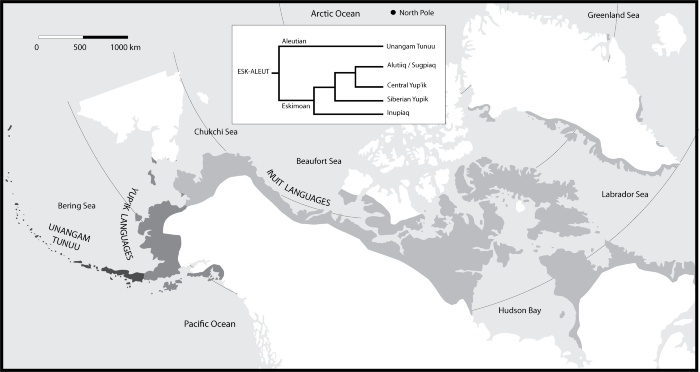Aleutian Islander, Unangax̂ — Taya’uq
The word Aleut has a colorful history. Introduced to Alaska by Russian fur traders in the eighteenth century, it originated in eastern Siberia. Aleut comes from a Siberian Native language, and it means coastal dweller: a person who makes a living from the sea. Although Russian explorers recognized differences between the groups of Alaska Natives they encountered, they used this one term to describe all Native peoples. Russian traders called people with different languages, social practices, beliefs, and histories Aleut. In the modern era, this has caused confusion, because people of different heritages are known by the same term.
Despite this situation, the word Aleut was once a popular self-designator both in the Aleutian Islands and in southcentral Alaska. Many people prefer this familiar term because they were raised using it. Others have chosen to use traditional terms for their people: Unangax̂ in the Aleutians and Sugpiaq in the central Gulf. The word Alutiiq is itself derived from Aleut and became commonly used in the 1970s. It is the way that the Native residents of Prince William Sound, Cook Inlet, Kodiak, and the Alaska Peninsula say Aleut in their traditional language.

